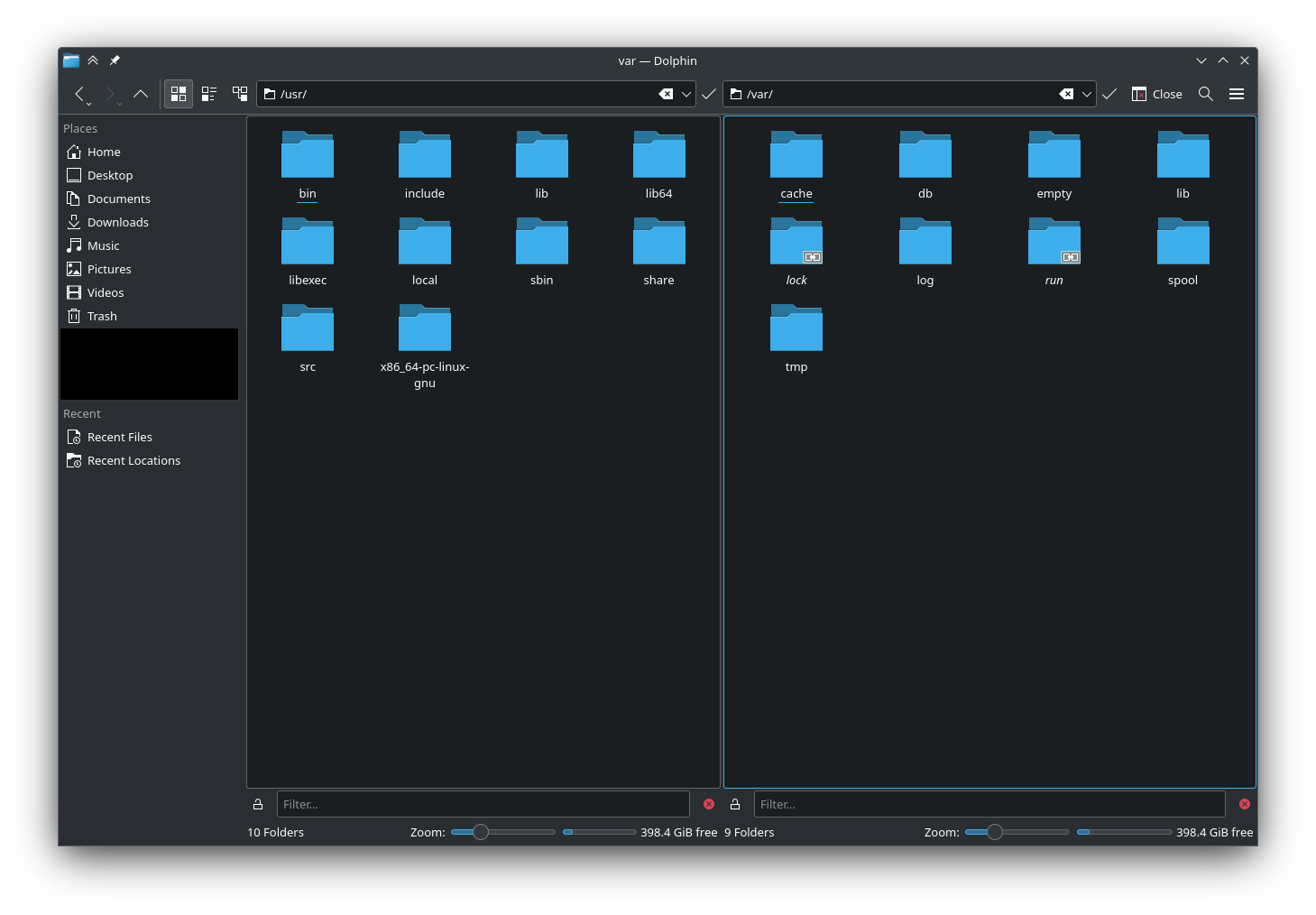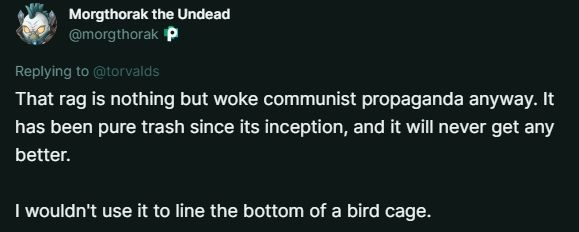

https://w14.monkrus.ws/ oops my cat started walking on my keyboard sorry guys, i hope the link that came out doesn’t contain any unlicensed adobe software
he/him
matrix - @krauseddr:matrix.org
mastodon - @Krause@matapacos.dog
e-mail - krauseddr@protonmail.com


https://w14.monkrus.ws/ oops my cat started walking on my keyboard sorry guys, i hope the link that came out doesn’t contain any unlicensed adobe software


audacious, AFAIK it’s the only one to support vgmstream
Why “less”? Gentoo is about choice, you can still compile all packages, this just gives you the option to install binaries if you prefer that.


/tmp and /var/tmp are writable to regular users on most distributions


If you actually care, do something like switching to ethereum
“If you’re against drinking poison drink this 1% healthier poison in place of it!”
Or maybe we can stop with this crypto shit instead?


Dolphin has a dual panel mode:



Also, we’re all using proprietary hardware
Sure, I have proprietary bits on my kernel and my AMD GPU needs proprietary firmware loaded to work, but that’s a hell lot different than the situation NVIDIA shoves users into. It’s one thing to have small proprietary components that don’t bother me or break my workflow, it’s another to have black box drivers that can bork my setup if I dare to update my packages.


Wayland fixes VRR, mixed refresh rate display setups, screen tearing, X11 security bugs AND makes bigots mad? Sign me up! :-)


Wayland does not work properly on NVidia hardware
That’s a feature, stop buying hardware from vendors that treat GNU/Linux and *BSD users as second-class citizens and locks them into proprietary drivers.
Wayland is biased toward Linux and breaks BSD
Seems to work just fine on FreeBSD.
Wayland breaks games
Games are developed for X11. And if you run a game on Wayland, performance is subpar due to things like forced vsync. Only recently, some Wayland implementations (like KDE KWin) let you disable that.
Gaming performance is actually better on Wayland.
trusted steam to run outside a container


I tried Homebrew once in a VM and didn’t like it, I felt it was too invasive.
Why does it create another user and put files under /home/linuxbrew/? Answer:
The script installs Homebrew to its default, supported, best prefix (/opt/homebrew for Apple Silicon, /usr/local for macOS Intel and /home/linuxbrew/.linuxbrew for Linux) so that you don’t need sudo after Homebrew’s initial installation when you brew install.
Where’s the logic in that? Why not just install to the user’s home directory so that you don’t even need root access in the first place?
Why is sudo hard-coded? Answer: it’s to prevent people from using doas and other sudo alternatives.
Why is installing from the tarball unsupported and so frowned upon? FFS isn’t this just supposed to be a package manager? Why is everything so complicated and opinionated when compared to pip, cargo, Flatpak, etc? Compare this mess to Golang’s install and uninstall process where you literally just need to tar -xzf a file or rm -rf a directory.


But you can still activate it with this FOSS solution: https://github.com/abbodi1406/KMS_VL_ALL_AIO
it’s a reference to something linus said
https://news.itsfoss.com/linus-torvalds-woke-communists/
https://social.kernel.org/notice/AWSXomDbvdxKgOxVAm


true, just like anti-fascist partisans during world war 2 were ANTI-POLITICAL, it was just a reaction against the POLITICAL IMPOSITION called fascism /s
Yeah guys, can we NOT drag politics into the Free Software movement? Everyone knows that IP law and the whole struggle against proprietary software and the giant corporations that push it is non-political.

colonization largely brought to an end around the world
that’s really funny
i’ve been using releases from there for years and i’ve never had any problems, you can find people saying the same thing on sites like reddit